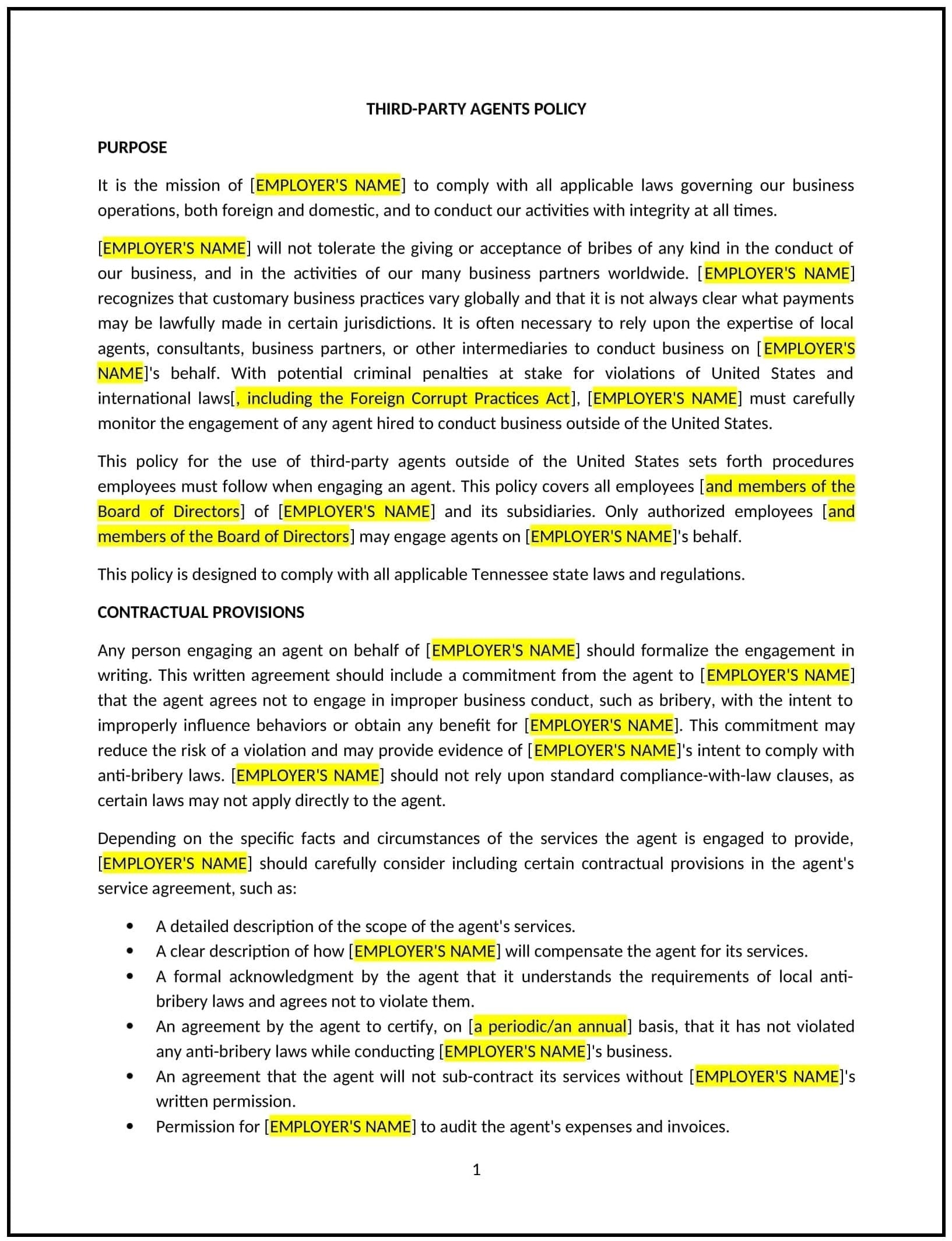Third-party agents policy (Tennessee): Free template
Got contracts to review? While you're here for policies, let Cobrief make contract review effortless—start your free review now.

Customize this template for free
Third-party agents policy (Tennessee)
This third-party agents policy is designed to help Tennessee businesses establish guidelines for working with external parties, such as vendors, contractors, or consultants. It outlines procedures for ensuring ethical behavior, compliance with laws, and protection of the business’s interests.
By adopting this policy, businesses can reduce risks, maintain accountability, and align with best practices for third-party relationships.
How to use this third-party agents policy (Tennessee)
- Define third-party agents: Clarify who qualifies as a third-party agent, such as vendors, contractors, or consultants.
- Set expectations: Outline ethical standards and compliance requirements for third-party agents, such as anti-bribery and confidentiality agreements.
- Address due diligence: Provide steps for vetting third-party agents before engaging their services.
- Monitor performance: Specify how third-party agents will be evaluated and held accountable for their work.
- Train employees: Educate staff on working with third-party agents and enforcing the policy.
- Review and update: Assess the policy annually to ensure it aligns with evolving business needs and legal requirements.
Benefits of using this third-party agents policy (Tennessee)
This policy offers several advantages for Tennessee businesses:
- Reduces risks: Minimizes the potential for legal disputes, fraud, or reputational damage caused by third-party agents.
- Maintains accountability: Ensures third-party agents adhere to ethical standards and contractual obligations.
- Enhances transparency: Provides clear guidelines for working with external parties.
- Protects business interests: Safeguards the business’s reputation, data, and financial assets.
- Aligns with best practices: Supports a structured approach to managing third-party relationships.
Tips for using this third-party agents policy (Tennessee)
- Communicate the policy: Share the policy with employees and include it in the employee handbook.
- Provide training: Educate staff on working with third-party agents and enforcing the policy.
- Monitor compliance: Regularly review third-party agreements and performance to ensure adherence.
- Address issues promptly: Take corrective action if third-party agents violate the policy or underperform.
- Update regularly: Assess the policy annually to ensure it aligns with evolving business needs.